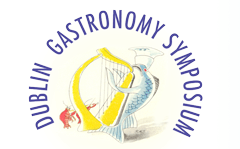Start Date
28-5-2024 4:30 PM
End Date
28-5-2024 4:45 PM
Description
The article describes how food practices and narratives associated with tradition can function as a tool for political propaganda. By organizing culinary competitions and festivals, local government offices and state institutions strive to unite potential voters under the common idea of cultivating Polish traditions. A group perfectly suited to this task seems to be Rural Housewives' Clubs, a widespread form of women's association in Poland. Despite the variety of tasks they perform in their villages, they are mainly associated with cooking and broadly understood tradition. Participating in such competitions is not only a good way to mobilize members and promote clubs, but also one of the few legal ways to earn money as a club. Using tradition as a slogan, organizing committees most often do not refer to any ethnographic sources, and the participation of Rural Housewives' Clubs becomes a specific form of legitimizing the entire project. By investing money from the state budget in such events, right-wing politicians co-create a convenient platform for promoting so-called nationwide values, rewriting and consolidating a new vision of traditionality. Meanwhile, Rural Housewives' Clubs, financed by state subsidies, make every effort to balance political declarations, the well-being of their members and their personal views.
Creative Commons License

This work is licensed under a Creative Commons Attribution-NonCommercial-Share Alike 4.0 International License.
DOI
https://doi.org/10.21427/1dnd-fv93
Traditional Polish Roasted Duck from the "Dino" Supermarket: Politicizing and Negotiating Tradition through Culinary Competitions for Rural Housewives' Clubs
The article describes how food practices and narratives associated with tradition can function as a tool for political propaganda. By organizing culinary competitions and festivals, local government offices and state institutions strive to unite potential voters under the common idea of cultivating Polish traditions. A group perfectly suited to this task seems to be Rural Housewives' Clubs, a widespread form of women's association in Poland. Despite the variety of tasks they perform in their villages, they are mainly associated with cooking and broadly understood tradition. Participating in such competitions is not only a good way to mobilize members and promote clubs, but also one of the few legal ways to earn money as a club. Using tradition as a slogan, organizing committees most often do not refer to any ethnographic sources, and the participation of Rural Housewives' Clubs becomes a specific form of legitimizing the entire project. By investing money from the state budget in such events, right-wing politicians co-create a convenient platform for promoting so-called nationwide values, rewriting and consolidating a new vision of traditionality. Meanwhile, Rural Housewives' Clubs, financed by state subsidies, make every effort to balance political declarations, the well-being of their members and their personal views.
